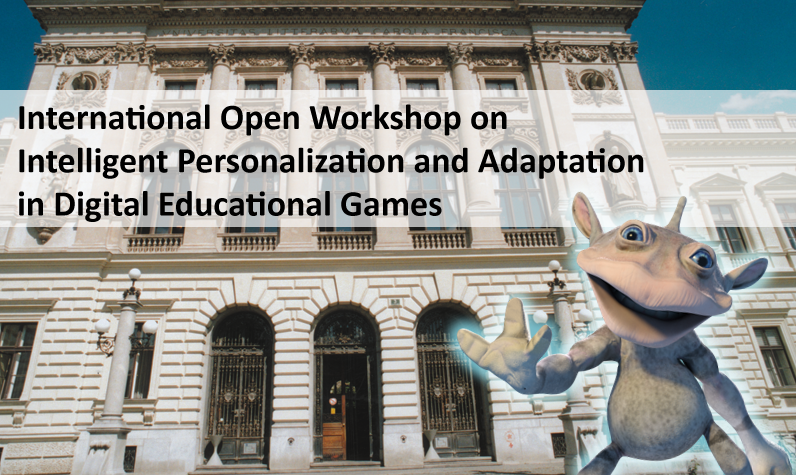
October 14, 2009,
Graz, Austria
There is a rapidly growing
interest in exploring design and technology of digital
educational games (DEGs). Reasons for the present
hype over game-based learning are manifold; for example,
characteristics of modern computer games enable to
transmit knowledge in a very natural and unobtrusive
way. Another reason might be that characteristics
of computer games amazingly match instructional design
principles (e.g., the provision of credible and meaningful
contexts for new knowledge). A further reason might
be that computer games allow reaching young people,
particularly those that are difficult to reach by
other means of education.
Equally rich as the
reasons for the popularity of DEGs are, are the examples
and approaches to game-based learning. The ideas range
from utilizing off-the-shelf games to games tailored
to specific curricula or age groups, from rich simulation
games to augmented reality games, or from game-like
enhancements to AAA educational games.
More than any other
genre of educational technology, computer games do
have the potential do make learning and knowledge
important and meaningful. In a single word, the key
aspect in DEGs is “motivation”, the intrinsic
motivation to play and therefore to learn. However,
more than in any other genre of educational technology,
tailoring gaming experience and learning paths to
the individual learner is crucial. The intrinsic motivation
is heavily determined by gameplay demands, educational
demands, personal preferences, and individual factors.
80Days International
Open Workshop on Intelligent Personalization and Adaptation
in Digital Educational Games focuses on ideas, approaches,
case studies, or technologies, about adapting DEGs
to the individual requirements, needs, and preferences
of learners. The goal of the workshop is to bring
the leading researchers and practitioners in this
area together and to initiate a lively discourse.
80Days International
Open Workshop on Intelligent Personalization and Adaptation
in Digital Educational Games is organized by the 80Days
Project (www.eightydays.eu), a cutting-edge research
initiative of the European Union’s Seventh Framework
Programme for research and technological development
(FP7). The project’s goal is to explore new
frontiers in DEGs by combining effective learning
with fun and pleasure. Core objectives of the project
are intelligent mechanisms for non-invasive knowledge
assessment and the establishment of a higher-level
adaptation framework that merges educational adaptation
and interactive storytelling.



